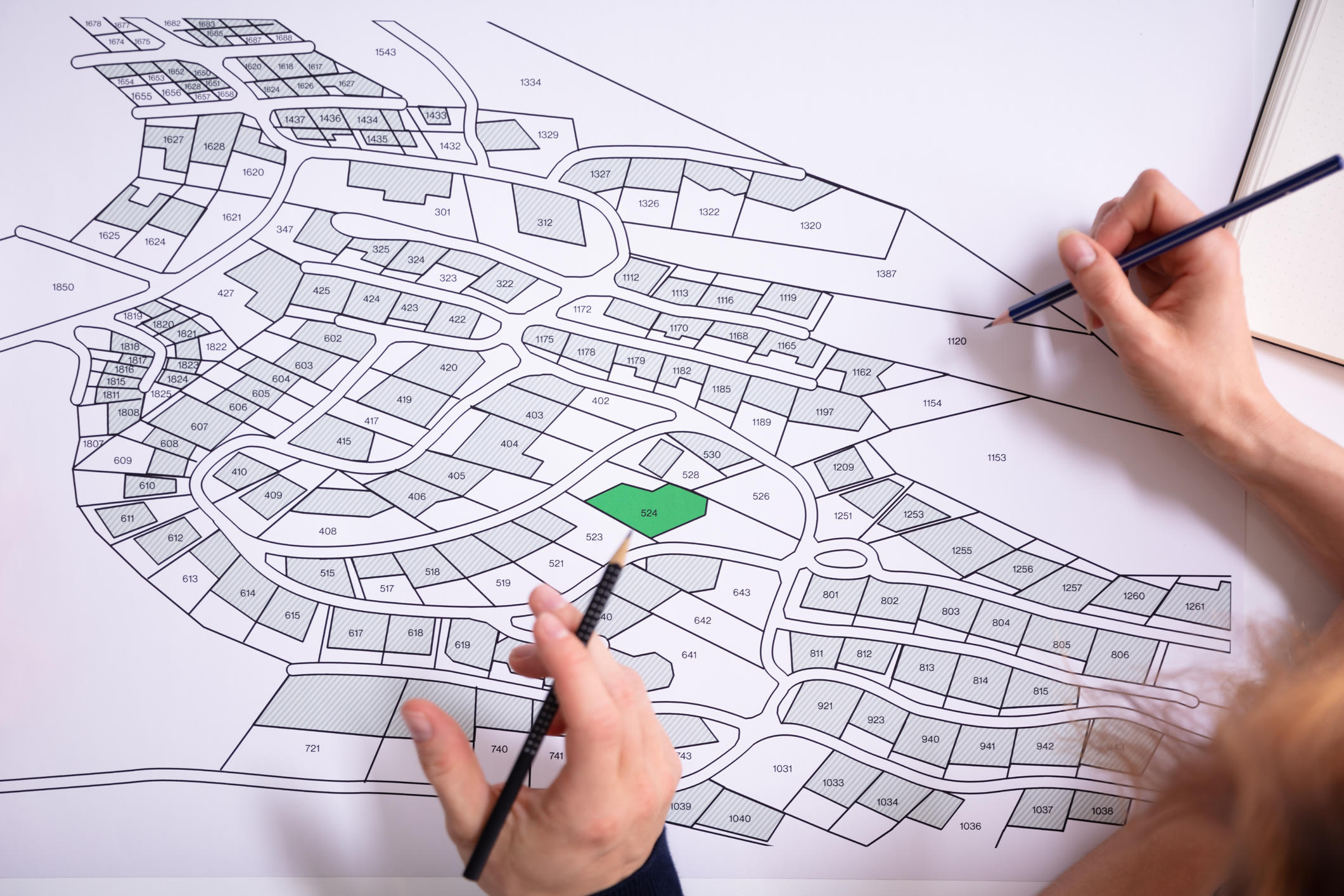Real estate
formation law

Real estate formation law is a speciality amongst property law. It deals with, for example, the determination of the location of the borders of a property, the establishing of rights (or easements) for another property to use the property (such as a right of way, a boat harbour or the right to construct a power or water line in the property’s area) or the division of an existing property into several properties either by subdividing an unseparated parcel or by means of partitioning.
This area of law can also be considered to include claims, which pertain to the claiming of the property area or a special right, usually for the municipality or the state, but sometimes to a private party as well.
The cadastral survey procedure is a special type of administrative procedure
Matters pertaining to real estate formation law are primarily decided through a special cadastral survey procedure. The cadastral survey procedure is a specifically regulated administrative procedure. A matter which is decided in the cadastral procedure may not be taken up in a general court of first instance, and the officiality principle is a central principle pertaining to it. This means that in the cadastral survey procedure, the independent land surveyor or the executors (the land surveyor and two trustees selected by the municipal council) have the right and the obligation to resolve ex officio all the necessary issues pertaining to the procedure. This means that they are not bound by what the parties have represented during the procedure; when deciding on the matter, they are required to also consider, on their own initiative, any matters which the parties may not have brought up themselves. The executors must naturally reserve the right for the parties of the procedure to be heard in the matter before making their decision.
This may, however, lead to a situation in which the case is resolved on a basis that a layman cannot foresee or take into account when they consider filing a cadastral procedure application.
A decision given in the cadastral procedure may be appealed to the Land Court, which acts as a separate department of the district court. It has a district judge specialising in these matters as chairperson and a land court engineer and two lay members in the main proceedings. Despite its special characteristics, the procedure in the Land Court is mainly similar to a normal civil process, meaning that the Land Court is bound to the claims made by the parties and that it resolves the case based on the evidence provided by the parties. A successful appeal in the Land Court, therefore, requires that the claims and their justifications are presented correctly.
Decision-making in a private road maintenance association
Matters pertaining to private roads are a third area of cases related to real estate formation law. This includes, for example, the private road maintenance association’s decision on the division of road construction or maintenance costs amongst the joint-owners. A decision of the private road maintenance association can be appealed against in the district court.
Why choose Asianajotoimisto Sillanpää Oy?
Attorney Ismo Sillanpää has more than a decade of experience of assignments pertaining to real estate law, both in the context of the cadastral procedure and in Land Court.
Furthermore, Jouko Sillanpää served as a land court engineer in the North Savo Land Court for almost 16 years, and before that, he worked as a land surveyor for over 20 years. During his career, he has participated in the resolution of thousands of cases pertaining to real estate formation law in the role of the decision-maker.
Jouko Sillanpää offers his extensive special competence for the benefit of our clients, either by offering consultation to our attorneys in assignments falling under his special competence, or by representing our clients himself as an adviser or agent in the cadastral procedure and in the Land Court procedure.
Typical assignments include:
- assisting in property, private road and claim procedures or appeals related to these in the Land Court or the Supreme Court,
- consultation and assistance in issues related to land use and land use planning with various authorities and at different stages of the process.
